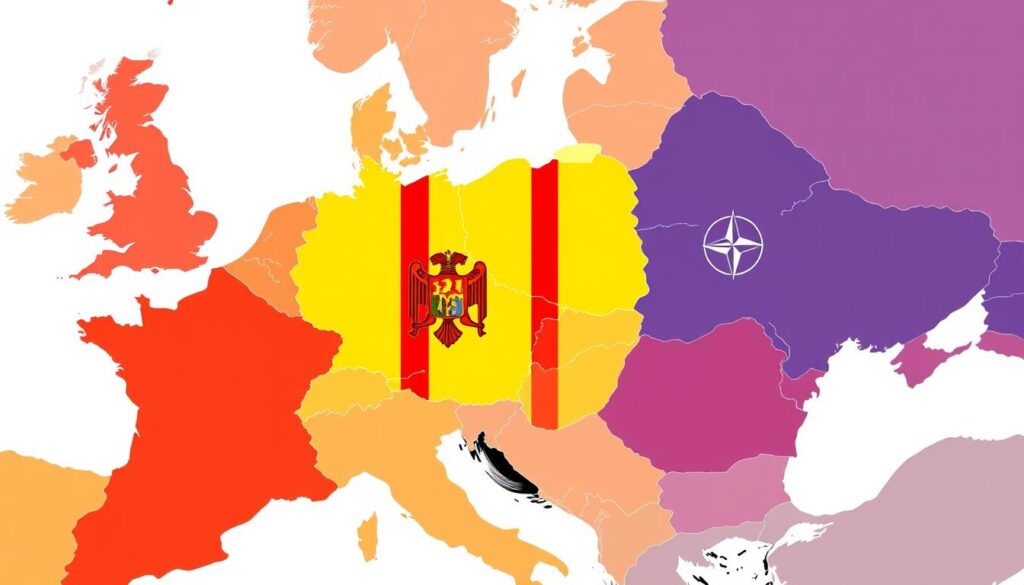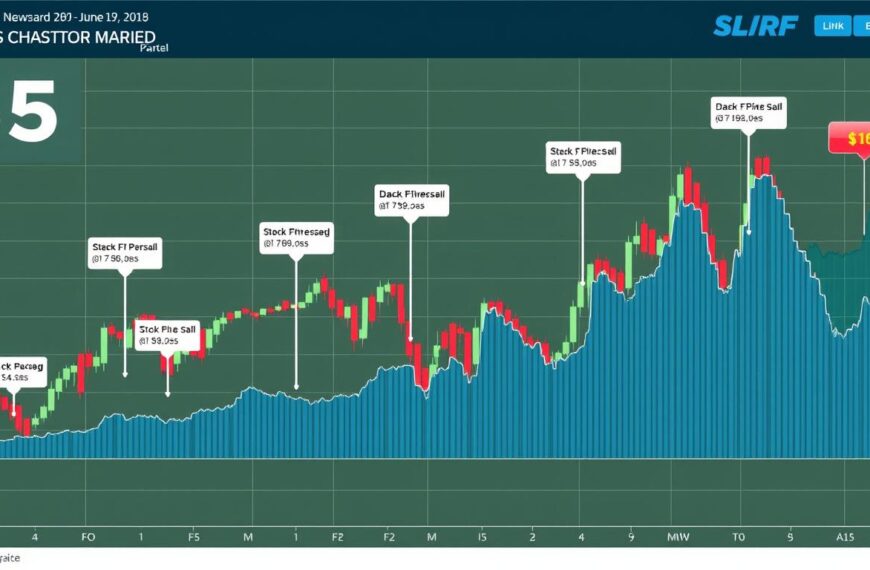In a historic victory for Moldova’s pro-European trajectory, President Maia Sandu secured a second term with a resounding 54.7% of the vote, defeating her Moscow-backed opponent Alexandr Stoianoglo. This decisive win, with nearly 99% of ballots counted, underscores the Moldovan electorate’s overwhelming support for Sandu’s vision of aligning the country with the European Union and distancing it from Russian influence.
Sandu’s reelection solidifies Moldova’s path towards European integration, a move that has been met with significant pushback from Russia. The Moldovan negotiator with the EU reported that Moscow had invested around €100 million ($109 million) in efforts to disrupt the country’s elections, underscoring the geopolitical significance of this contest.
Key Takeaways
- Maia Sandu won a decisive victory in Moldova’s presidential election, securing 54.7% of the vote.
- Sandu’s win is seen as a major boost for Moldova’s EU integration efforts, which have faced significant resistance from Russia.
- The election was marred by allegations of Russian interference, including vote-buying and misinformation campaigns.
- Sandu’s government has committed to reforming Moldova’s justice system and economy to achieve EU membership by 2030.
- The Moldovan diaspora played a crucial role in Sandu’s victory, with about 20% of the electorate consisting of expatriates who overwhelmingly backed the pro-EU candidate.
Moldova Pro-Western Reelection: A Historic Victory for Democracy
The recent Moldovan presidential election marked a historic victory for democracy in the country. President Maia Sandu’s reelection, in which she garnered over 54% of the vote, underscored the Moldovan people’s strong support for a pro-Western political direction and the reinforcement of democratic processes.
Election Results and Voter Turnout
Voter turnout for the election reached a record high of 54%, with over 1.68 million Moldovans casting their ballots. This impressive participation rate demonstrates the growing engagement of the Moldovan electorate in the democratic process. Sandu’s margin of victory, at over 54% of the vote, further solidifies the mandate for her pro-Western agenda.
Diaspora’s Critical Role in the Victory
The Moldovan diaspora played a crucial role in Sandu’s reelection, with nearly 80% of the over 300,000 Moldovans voting abroad casting their ballots in her favor. This significant diaspora support, accounting for around 20% of Moldova’s entire voter base, was instrumental in Sandu’s historic victory.
Democratic Process Validation
Despite various challenges, including false bomb threats at polling stations abroad and cybersecurity threats targeting voter records, the electoral process in Moldova was largely successful in validating the democratic principles. Sandu’s declaration of the result as a “lesson in democracy” underscores the importance of this election in strengthening Moldova’s commitment to democratic governance.
The Moldovan pro-Western reelection has significant implications for the country’s foreign policy alignment, democratic processes, and geopolitical influence in the region. This victory represents a crucial milestone in Moldova’s pursuit of a Western-oriented future.
Maia Sandu’s Path to Second Term Presidency
Maia Sandu, a former World Bank adviser, has been at the forefront of Moldova’s pro-Western political transformation since taking office in 2020. Her campaign for a second term as president has been centered on deepening the country’s integration with the European Union and tackling endemic corruption.
In the October 20th first round of the presidential election, Sandu secured 42% of the vote, narrowly missing an outright majority. Her main challenger, Alexandr Stoianoglo, a former prosecutor backed by the pro-Russian Socialists, obtained over 26% of the votes. The run-off election on November 15th solidified Sandu’s mandate, with the pro-reform candidate securing a decisive victory and a second term as Moldova’s President.
Sandu’s win reflects the growing pro-European sentiment among Moldovan voters, who have grown increasingly disillusioned with the country’s historical ties to Russia. Maia Sandu, a fluent speaker of Romanian, English, and Russian, has emerged as a unifying figure for those seeking closer integration with the West and a break from Moldova’s Soviet-influenced past.
However, Sandu’s tenure has not been without challenges. She has faced criticism from a significant portion of the population for allegedly failing to effectively manage the country’s struggling economy, high inflation, and lack of judicial reforms. Despite these hurdles, Sandu’s ability to unite a large base of supporters has been a key factor in her re-election success.
“I will be a president for all Moldovans. My goal is to promote peace, harmony, and a better life for all our citizens.”
As Maia Sandu embarks on her second term, she will continue to navigate the complex geopolitical landscape of Eastern Europe, balancing Moldova’s European ambitions with the persistent influence of Russia in the region. Her re-election represents a significant victory for the pro-reform, pro-Western movement in Moldova, setting the stage for further advancements in the country’s democratic and economic development.
| Key Fact | Value |
|---|---|
| Moldova’s Population | 2.6 million |
| Sandu’s First-Round Vote Share | 42% |
| Stoianoglo’s First-Round Vote Share | 26% |
| Sandu’s Languages | Romanian, English, Russian |
| Sandu’s Education | Master’s in International Relations, Harvard University |
Russian Interference and Electoral Challenges
The recent presidential election in Moldova was marred by allegations of political instability and geopolitical influence from external actors. Prosecutors claimed a major vote-buying scheme orchestrated by exiled oligarch Ilan Shor, with over $39 million reportedly paid to more than 130,000 voters to sway the outcome.
Cybersecurity threats also posed a challenge, with reports of DDoS attacks on the Central Election Commission’s voter education site. International observers and Moldovan officials, however, highlighted ongoing efforts to counter these threats and ensure the democratic processes remained intact.
Vote-Buying Allegations
The Moldovan government accused Ilan Shor, an exiled oligarch, of attempting to buy the votes of over 300,000 citizens, representing almost 10% of the country’s population. Anti-corruption authorities seized more than $2.7 million in cash and conducted numerous searches as part of their crackdown on these alleged illicit activities.
Cybersecurity Threats
Alongside the vote-buying allegations, the election was also targeted by cybersecurity threats, including DDoS attacks on the Central Election Commission’s voter education website. Moldovan officials and international observers, however, emphasized their commitment to safeguarding the electoral process and maintaining its integrity.
International Response to Interference
The international community closely monitored the Moldovan election, with concerns raised about the potential for political instability and geopolitical influence from external actors. Moldovan authorities worked to address these challenges and ensure the democratic processes were upheld, despite the allegations and threats.
| Allegation | Impact | Response |
|---|---|---|
| Vote-Buying Scheme | Over $39 million paid to 130,000+ voters | Anti-corruption crackdown, $2.7 million seized |
| Cybersecurity Threats | DDoS attacks on voter education website | Efforts to safeguard electoral integrity |
| International Monitoring | Concerns about political instability and geopolitical influence | Moldovan authorities addressed challenges to uphold democratic processes |
The Strategic Importance of Moldova’s Political Direction
The outcome of Moldova’s recent election holds strategic significance for the region’s geopolitical landscape. As the country navigates between pro-Western and pro-Russian influences, the reelection of President Maia Sandu reinforces Moldova’s trajectory towards deeper European Union (EU) integration. This critical test of Moldova’s political direction is closely watched by global powers, including the United States, European Union, and Russia.
Moldova’s Foreign Policy Alignment and Geopolitical Influence in Eastern Europe have been thrust into the spotlight. The country’s strategic location, its history of Russian interference, and its aspirations for European integration make it a crucial player in the region’s geopolitical landscape. Sandu’s victory is seen as a mandate for the country’s pro-Western stance, which could have far-reaching implications for Eastern European Politics.
Notably, Moldova’s election featured a referendum on adding EU membership as a constitutional goal, which was approved with 50.38% of the vote. This move underscores the country’s commitment to its European trajectory, despite ongoing challenges posed by Russian interference and disinformation campaigns. The scale of these efforts, including alleged vote-buying and cybersecurity threats, underscores the high stakes involved in Moldova’s political direction.
As Moldova navigates its complex geopolitical landscape, the strategic importance of its political direction cannot be overstated. The country’s Foreign Policy Alignment, Geopolitical Influence, and Eastern European Politics will continue to be closely watched by the international community, with significant implications for the region’s security and stability.
European Union Integration Progress and Prospects
Moldova’s pro-Western reelection has set the stage for accelerated efforts towards European Union (EU) integration. The EU has promised a €1.8 billion multi-year financial support package to aid Moldova’s accession path. President Maia Sandu has pledged to work towards EU membership by 2030, a goal that aligns with her administration’s pro-Foreign Policy Alignment and Political Stability agenda.
The narrow passage of an EU referendum on October 20, 2024, with just 50.35% of the vote, highlighted the challenges ahead. However, the resounding Pro-EU Candidates victory is expected to bolster Moldova’s push for EU integration and potentially influence the timeline for accession negotiations.
EU Membership Negotiations
The European Commission opened accession negotiations with Moldova in December 2023, marking a significant milestone in the country’s Euro-Atlantic integration efforts. This move came after the Moldovan Central Election Commission (CEC) reported 3,301,368 total registered Moldovan voters in July 2024, underscoring the strong democratic mandate behind the pro-EU government.
Financial Support Package
The €1.8 billion financial support package announced by the EU is a testament to its commitment to Moldova’s development and reform agenda. This historic investment builds on the €177.9 million disbursed in 2022 and €344.1 million in 2023, making the EU Moldova’s largest external donor. The funds will be crucial in addressing the country’s economic challenges, including rising poverty rates from 26% to 31% post the Russian invasion of Ukraine.
Timeline for EU Accession
President Sandu’s pledge to achieve EU membership by 2030 reflects the administration’s sense of urgency and the Moldovan people’s desire for closer integration with Europe. While the timeline remains ambitious, the combination of political will, financial support, and the momentum generated by the pro-Foreign Policy Alignment election result offer cautious optimism for Moldova’s EU accession prospects.
Impact on Moldova-Russia Relations
Maia Sandu’s resounding victory in Moldova’s presidential election is poised to further strain the country’s relations with Russia. The continued pro-Western orientation of the Moldovan government under Sandu’s leadership signals a shift away from Moscow’s sphere of influence in the Eastern European region.
The ongoing presence of Russian troops in the breakaway territory of Transnistria remains a contentious issue. Sandu has been vocal in her criticism of Russian interference in Moldovan affairs and has sought to reduce Moscow’s political and economic leverage over the country. This hardline stance is likely to escalate tensions in the bilateral relationship, as Russia seeks to maintain its foothold in the strategically important region.
| Geopolitical Influence | Foreign Policy Alignment | Eastern European Politics |
|---|---|---|
| Sandu’s re-election signals a continued shift away from Russia’s orbit, potentially leading to more tensions in bilateral relations. | Moldova is expected to further strengthen its ties with the European Union and deepen its pro-Western foreign policy alignment under Sandu’s leadership. | The outcome of the election demonstrates the growing influence of pro-Western sentiment in Eastern European countries, challenging Russia’s regional dominance. |
The Moldovan government’s recent expulsion of Russian diplomats and its condemnation of Russia’s invasion of Ukraine have further strained the already fragile Moldova-Russia relationship. As Sandu pushes for greater European integration and reduces Moscow’s clout, the potential for increased geopolitical tensions and economic repercussions remains a concern for the small, landlocked country.
“Sandu’s presumed victory is significant for Moldova’s future integration with the European Union,” stated Siegfried Mureșan, a Romanian Member of the European Parliament.
Overall, Maia Sandu’s reelection is poised to have far-reaching implications for Moldova’s Geopolitical Influence, Foreign Policy Alignment, and the broader Eastern European Politics landscape.
International Community Response to the Election
The decisive victory of Maia Sandu, Moldova’s pro-Western incumbent president, in the 2024 presidential election was widely welcomed by the international community. Western leaders, including European Union Chief Ursula von der Leyen, congratulated Sandu on her successful reelection bid, hailing it as a positive sign for democratic processes in the region.
The outcome of the election stands in sharp contrast to recent political developments in neighboring countries like Georgia, where political tensions and allegations of electoral irregularities have raised concerns about the state of democracy. In contrast, Moldova’s election was seen as a boost for the European Union’s expansion efforts in Eastern Europe, as Sandu’s pro-EU platform garnered strong support from both domestic and diaspora voters.
Western Leaders’ Reactions
The reelection of Maia Sandu, a staunch pro-EU candidate, was welcomed by Western governments as a testament to Moldova’s commitment to foreign policy alignment with the European Union. Leaders across the EU and North America praised the democratic integrity of the electoral process and Sandu’s decisive mandate to continue her geopolitical influence in steering Moldova towards closer European integration.
Regional Implications
Sandu’s victory is seen as a positive development for the broader Eastern European region, where democratic backsliding and foreign policy alignment with Russia have been a concerning trend. The Moldovan election results are viewed as a counterpoint to this pattern, bolstering the position of pro-EU candidates and reinforcing the region’s geopolitical influence in favor of closer ties with the West.
Overall, the international community’s positive response to Maia Sandu’s reelection underscores the strategic importance of Moldova’s political direction and its potential to shape the foreign policy alignment and geopolitical influence in Eastern Europe.
Domestic Reform Agenda Under Sandu’s Leadership
With her resounding re-election victory, President Maia Sandu of Moldova has a renewed mandate to continue her ambitious pro-reform agenda. The 52-year-old leader, who holds dual master’s degrees from Harvard University, has been at the forefront of the country’s efforts to combat corruption and strengthen democratic institutions.
Sandu’s second term is expected to focus on further enhancing the Pro-Reform Government and ensuring Political Stability in Moldova. Her reform agenda includes improving the justice system, attracting foreign investment, and preparing the country for eventual European Union integration.
The Moldovan Elections have provided Sandu with a clear mandate to push forward with these reforms, though challenges remain in their implementation. Moldova, a landlocked nation situated between Ukraine and EU member Romania, has been grappling with corruption, high inflation, and the need to reduce Russian influence in the region.
Sandu, who founded the center-right Action and Solidarity Party (PAS) in 2016, has been praised for her multilingual proficiency and ability to engage effectively on the international stage. Her victory was seen as a symbol of change, a step towards a new pro-Western direction for Moldova.
| Key Priorities | Achievements So Far | Challenges Ahead |
|---|---|---|
|
|
|
As Sandu embarks on her second term, she faces the challenge of translating her reform vision into tangible results that will improve the lives of Moldovans and solidify the country’s pro-Western trajectory.
“Sandu has been at the forefront of the country’s efforts to combat corruption and strengthen democratic institutions.”
Geopolitical Implications for Eastern Europe
Moldova’s pro-Western reelection of President Maia Sandu has significant geopolitical implications for Eastern Europe. Sandu’s victory is welcomed by Ukraine, with President Zelenskyy praising her leadership. This outcome reinforces a pro-Western alignment in the region, potentially influencing other former Soviet states to follow suit.
Ukraine-Moldova Relations
The cordial relationship between Moldova and Ukraine has strengthened under Sandu’s presidency. Both countries face challenges posed by Russian influence and the presence of frozen conflicts within their borders. Sandu’s reelection signals continued cooperation on regional security and economic integration efforts, further solidifying the pro-Western trajectory of the two neighboring nations.
Regional Security Considerations
Regional security remains a critical issue for Moldova, particularly the ongoing conflict in Ukraine and the status of Transnistria, the pro-Russian breakaway region within Moldova. Sandu’s government is expected to maintain its efforts to address these security concerns, working closely with international partners to ensure stability and safeguard Moldova’s sovereignty.
The geopolitical implications of Moldova’s pro-Western reelection extend beyond its borders, shaping the dynamics of Eastern European Politics and Geopolitical Influence in the region. Sandu’s continued leadership reinforces Foreign Policy Alignment with the West, potentially inspiring other former Soviet states to follow a similar path towards greater integration with European and transatlantic institutions.
Challenges Ahead for Moldova’s Pro-Western Government
Despite Maia Sandu’s historic election victory, her pro-reform government in Moldova faces significant challenges in the years ahead. The narrow margin of the referendum on EU membership integration, with a tie vote of 50.35% in favor and 49.65% against, highlights the deep political divisions within the country.
Maintaining political stability and consensus on Moldova’s European path will be crucial for Sandu’s pro-reform government. The low voter turnout of 44% in the referendum also underscores the need to engage more Moldovan citizens, particularly in the north and south, where the “No” vote prevailed.
Addressing the country’s pressing economic issues, such as its low GDP per capita (less than half of Bulgaria’s), energy security challenges, and brain drain, will be high priorities for Sandu’s administration. Preparing for the 2025 parliamentary elections will also be a critical task to sustain the pro-Western course and solidify Moldova’s democratic progress.









